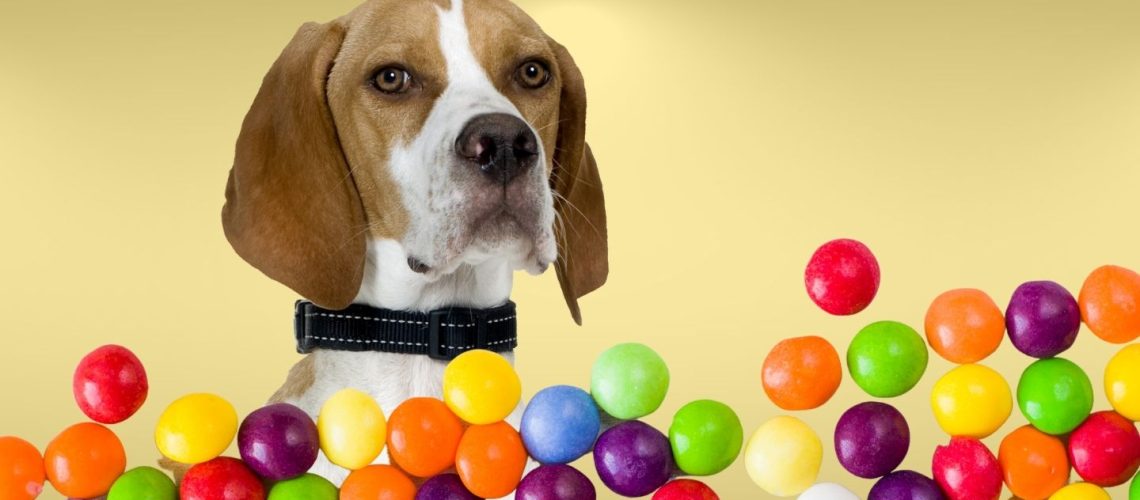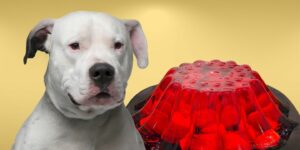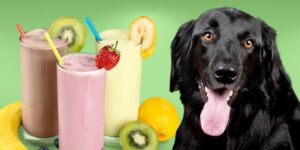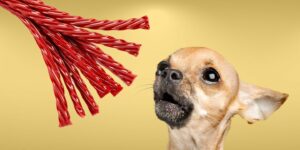No, dogs should not eat Skittles. While Skittles may not be toxic to dogs, they are not a healthy treat for them to eat. Skittles are high in sugar and artificial colors and flavors, which can be harmful to dogs if eaten in large quantities. It is crucial to provide dogs with a proper diet to maintain their health and well-being.
Ingredients in Skittles
Skittles contain several ingredients that are not beneficial for dogs and may even cause health issues.
Sugar
Sugar is a primary ingredient in Skittles, and excessive consumption can lead to health problems in dogs.
Effects of sugar on dogs
Overeating sugar can result in weight gain and dental problems for dogs. It may also contribute to diabetes in some dogs.
Corn Syrup
Corn syrup is another source of sugar found in Skittles, which can also have negative effects on a dog's health.
Effects of corn syrup on dogs
Like sugar, corn syrup can cause weight gain, dental issues, and an increased risk of diabetes in dogs.
Hydrogenated Palm Kernel Oil
This type of oil is a trans fat which can be harmful to dogs if consumed in large amounts.
Effects of hydrogenated palm kernel oil on dogs
High consumption of this trans fat can lead to obesity, heart disease, and other health issues in dogs.
Artificial Colors and Flavors
Skittles contain artificial colors and flavors, which have been linked to health issues in both humans and animals.
Effects of artificial colors and flavors on dogs
Artificial colors and flavors have been linked to allergic reactions and other health problems in dogs.
Potential Health Risks for Dogs
Feeding your dog Skittles can lead to numerous health issues, including:
Weight Gain and Obesity
Regular consumption of foods high in sugar and unhealthy fats can lead to weight gain and obesity in dogs.
Health issues associated with obesity in dogs
Obesity in dogs can cause arthritis, diabetes, heart problems, and even a shortened lifespan.
Dental Problems
Sugar contributes to dental problems in dogs, such as cavities and tooth decay.
How sugar contributes to dental problems in dogs
Sugar can encourage the growth of bacteria in a dog's mouth, leading to plaque build-up and dental issues.
Allergic Reactions
Some dogs may develop allergic reactions to artificial colors or flavors, which can cause various symptoms.
Signs of an allergic reaction in dogs
Symptoms of an allergic reaction in dogs may include itching, hives, vomiting, diarrhea, and difficulty breathing.
Safe Treat Alternatives for Dogs
To keep your dog healthy and happy, it is best to provide them with safe and nutritious treats, such as:
Dog Biscuits
Dog biscuits are a healthier alternative to Skittles, as they are formulated specifically for the nutritional needs of dogs.
Benefits of dog biscuits
Dog biscuits promote dental health and provide essential nutrients to support overall well-being.
Cooked, Unseasoned Meat
Small portions of cooked, unseasoned meat can be a protein-packed treat for dogs.
Appropriate meats for dogs
Safe meats for dogs include chicken, turkey, and lean cuts of beef or pork.
Vegetables
Some vegetables can be a healthy and low-calorie treat for dogs.
Safe vegetables for dogs
Dogs can enjoy vegetables such as green beans, carrots, and peas.
Tips for Feeding Your Dog Treats
Take the following precautions when giving treats to your dog:
Moderation and Portion Control
Treats should only be an occasional supplement to your dog's regular diet.
Avoid Feeding Dogs Human Food
Human food often contains ingredients that can be harmful to dogs and may disrupt their balanced diet.
Consult with Your Veterinarian
If you have concerns about your dog's diet, it is essential to consult with a veterinarian for guidance on appropriate treats and supplemental nutrition.
What to Do If Your Dog Eats Skittles
If your dog accidentally consumes Skittles, take the following actions:
Monitor for Signs of Distress
Watch for symptoms such as vomiting, diarrhea, or excessive itching, which may indicate an allergic reaction or gastrointestinal upset.
Symptoms to watch for
Difficulty breathing and swelling are also signs that your dog needs immediate veterinary attention.
Contact Your Veterinarian
Consult with your veterinarian regarding any potential health risks and necessary treatment for your dog.
Preventing Future Incidents
Secure Skittles and other harmful foods in high or locked cabinets to prevent your dog from accessing them.
Conclusion
While Skittles are not toxic to dogs, they are not a healthy treat for them to eat. Maintain a balanced diet for your dog, provide safe treats, and consult with your veterinarian for dietary advice. Feeding your dog nutritious, appropriate food will ensure their long-term health and happiness.











